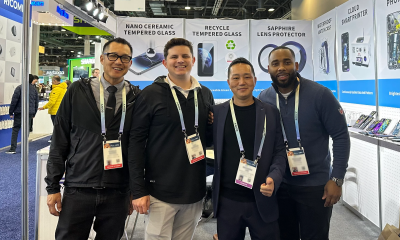Technology
Ofo struggles another sign of the Chinese dockless bike bubble


A “graveyard” of dockless bikes awaiting repair in
China.
Getty
Images
-
Ofo is cutting its presence in lots of markets after
raising billions of dollars and expanding rapidly. -
It signals a big change in strategy by refocusing on
big cities, and possible cashflow problems. -
Sources said bike-sharing economics are unprofitable
and that, in the US, scooter startups like Lime and Bird are
growing faster than dockless bike companies. -
It’s another sign the Chinese bike-sharing bubble has
burst.
Another Chinese bike-sharing startup is looking pretty wobbly
right now.
Ofo quietly canned its service in the UK cities of Sheffield,
Norwich and
Worcester, and made an undisclosed number of staff redundant
earlier this month. It also
shuttered most of its US operation, refocusing on larger
cities and is cutting the bulk of its workforce, according to the
Wall Street Journal.
The company has raised $2.2 billion to date to pioneer “dockless”
cycling in cities, where riders can use an app to find a nearby
bike, hire it for a small fee, then leave it anywhere after
they’ve finished using it. It is backed by Chinese giants Alibaba
and Didi Chuxing.
Ofo isn’t just cutting back its presence in Western markets. It
has
wound down operations in India,
cut back in Australia, and scaled back in its home country
China — all this year.
The changes signal a complete rethink in strategy for a startup
which tried to grow as quickly as possible by dumping huge
numbers of dockless bikes into new cities. And it’s another sign
that the bike-sharing market, pioneered mostly by well-funded
Asian startups, is going through a painful crunch.
With billions in backing and huge expansion, what’s going wrong
at Ofo?
Ofo pulling out of cities suggest a cashflow problem
Sources connected to Didi Chuxing speculated that bike-sharing
unit economics simply weren’t very profitable. “It would make
sense for them to go for efficiency,” one person told Business
Insider.

Chinese
commuters ride bike share through Tiananmen
Square.
Kevin Frayer/Getty
Images
Another source formerly worked at Bluegogo,
another Didi-backed startup that subsequently shut down. That
person said in the US, homegrown electric scooter startups were
outgrowing foreign bike-sharing startups.
US firms like Bird and Lime are seeing explosive growth by
hiring out electric scooters by the minute, and it’s possible
this is squeezing companies that focus on old-fashioned bicycle
hire.
IDC analyst Xu Yue, who keeps a close eye on bike-sharing
startups, said Ofo may be struggling to understand the Western
market as a Chinese startup. “They may have a problem facing the
different cultures of different governments, and the different
policies overseas,” said Yue.
Yue added that Ofo’s main competitor, Mobike, had more capital
for expansion and bicycle maintenance
after it was acquired by on-demand giant Meituan this year
for $2.7 billion. Ofo, on the other hand,
has reportedly rejected a buyout offer from its investor Didi
and decided to remain independent. That, Yue said, may be causing
cashflow problems.

Dai Wei, chief executive of Ofo, reportedly rejected a
buyout offer from Didi Chuxing.
Reuters
Another problem, added Yue, is that Ofo is struggling to maintain
its bikes. This is backed up by media
reporting around broken bikes being dumped around cities.
“If someone wants to ride a bike, and it’s hard to find a usable
one, people won’t open the bike-sharing app again,” said Yue.
“Ofo is behind competitors like Mobike, because of the visibility
of usable bicycles.”
The Chinese bike-sharing bubble has burst
Ofo isn’t the only one in trouble. There’s Bluegogo’s closure.
And Singapore-headquartered oBike
closed its operations in its home country despite raising
tens of millions of dollars in funding.
The closures suggest a bubble, with too many players funded by
too much capital expanding too quickly.
But IDC’s Yue doesn’t think it’s impossible to make money through
dockless bikes, provided startups can make the offline process of
repairing and collecting bikes more efficient. That involves
hiring staff or contractors to go around cities collecting bikes,
then either repairing them or moving them to a better location.
“That’s a very serious challenge for bike-sharing companies,” he
said. But, he added, “I don’t think it’s doomed to fail because
of profitability.”
If you know more about Ofo’s withdrawal from cities, contact
the author anonymously [email protected].
-

 Business6 days ago
Business6 days agoLangdock raises $3M with General Catalyst to help businesses avoid vendor lock-in with LLMs
-

 Entertainment6 days ago
Entertainment6 days agoWhat Robert Durst did: Everything to know ahead of ‘The Jinx: Part 2’
-

 Entertainment5 days ago
Entertainment5 days agoThis nova is on the verge of exploding. You could see it any day now.
-

 Business5 days ago
Business5 days agoIndia’s election overshadowed by the rise of online misinformation
-

 Business5 days ago
Business5 days agoThis camera trades pictures for AI poetry
-

 Business6 days ago
Business6 days agoCesiumAstro claims former exec spilled trade secrets to upstart competitor AnySignal
-

 Entertainment7 days ago
Entertainment7 days agoDating culture has become selfish. How do we fix it?
-

 Business7 days ago
Business7 days agoScreen Skinz raises $1.5 million seed to create custom screen protectors






















